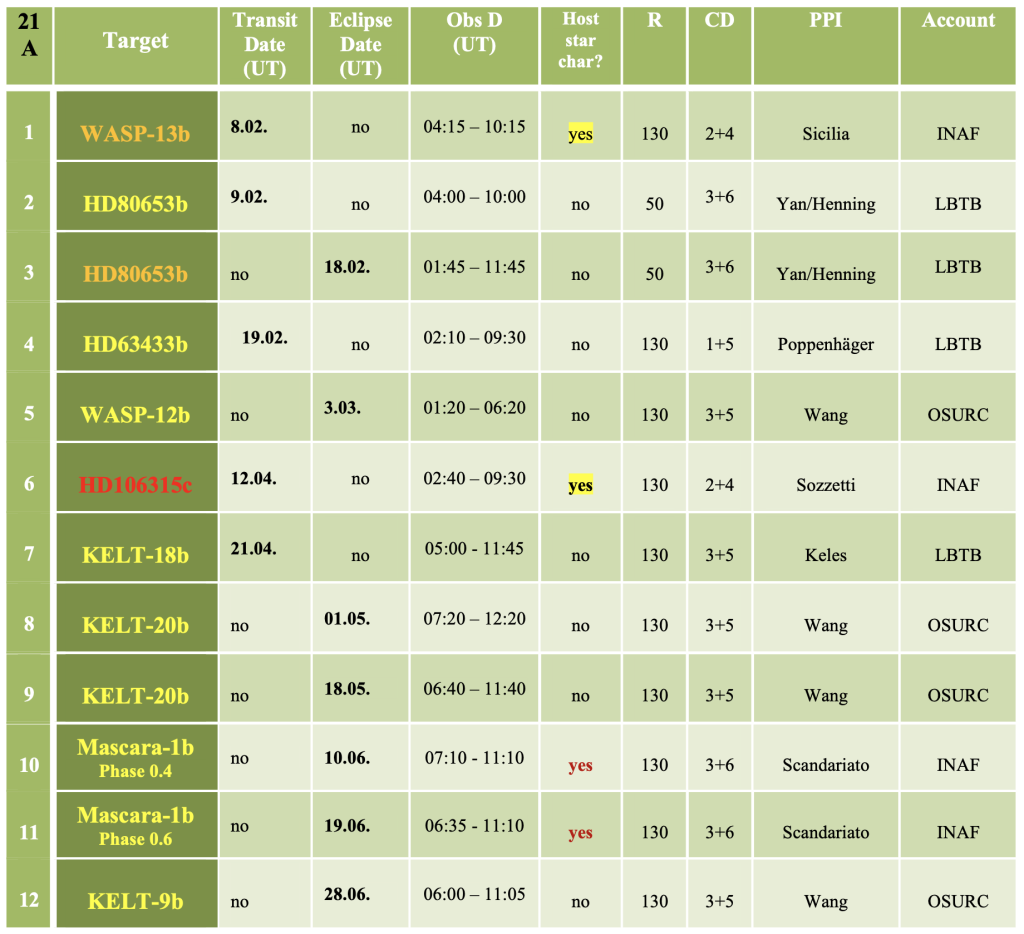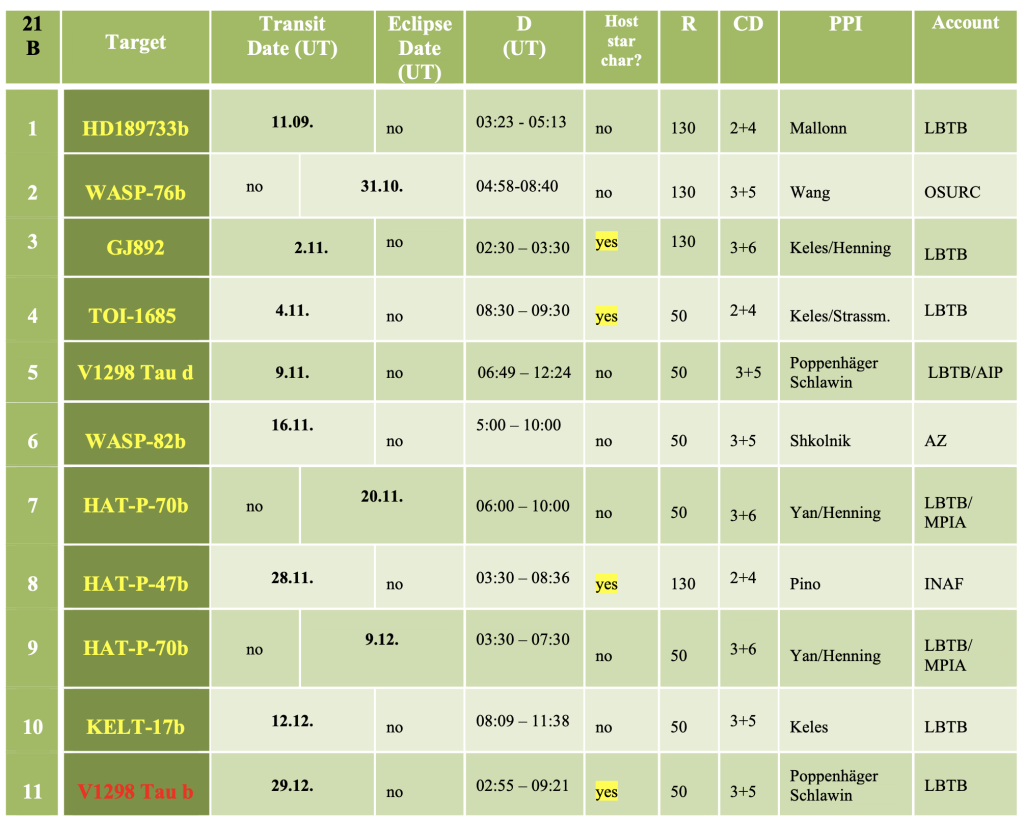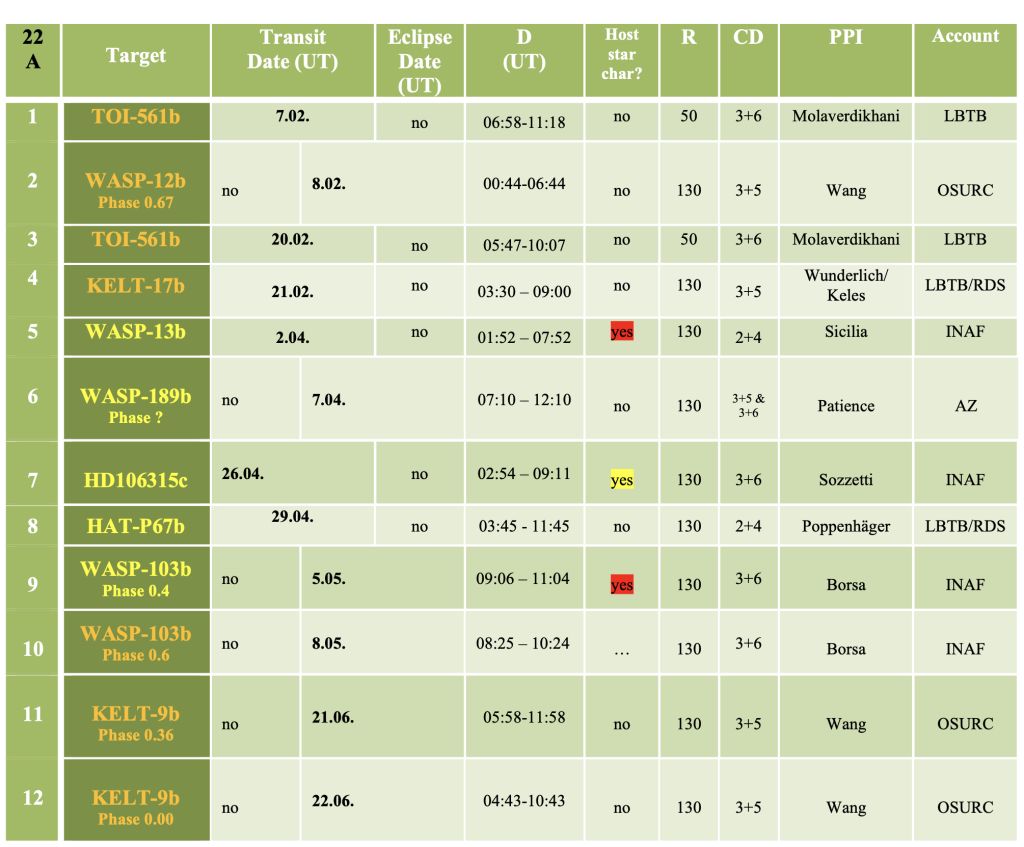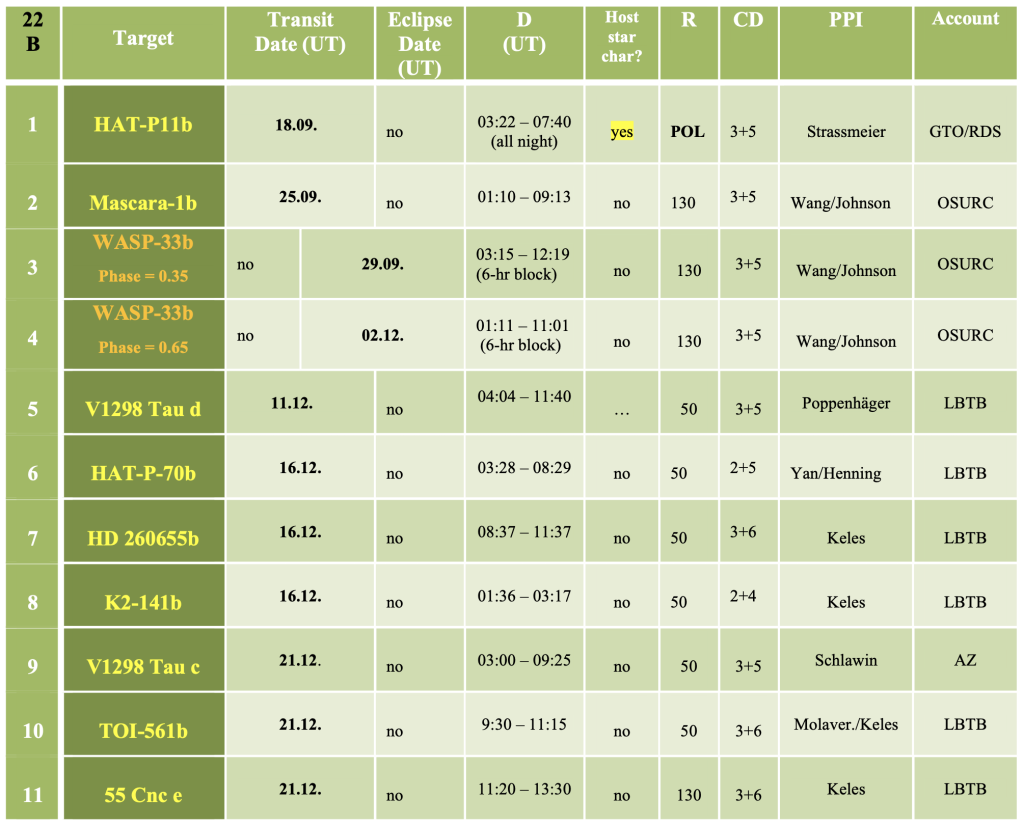We conducted a high-resolution spectroscopic survey of transiting exoplanets during the observing semesters 2021A, 2021B, 2022A, and 2022B, dubbed PETS (Strassmeier et al. 2020, link to Observing proposal). The survey aimed at many different but interrelated science cases, targeting stars with known exoplanet transits and/or star-planet relations. Immediate goal was the characterization of the planetary atmospheres of these targets. Characterizing the host star was an option, that is, full wavelength coverage deep and high-resolution spectra at phases outside of transit were also scheduled and executed if weather permitted. The strength of our survey is the combination of PEPSI’s spectral resolution and throughput with the light-collecting power of the LBT in binocular mode. An ideal use case was observing a transit in two wavelength regions (two PEPSI cross dispersers simultaneously) at, say, R=130,000 and then re-observing the target for the superior conjunction phases shortly before and after planet eclipse, of course depending on the real science case and the time available.
A total of 46.9 nights was scheduled in 2021A (15 nights), 2021B (12 nights), 2022A (11.5 nights) and 2022B (8.4 nights). This telescope time came from regular partner allocations. Nights per semester were split into full and 1⁄2 nights depending on transit duration. On two nights in 22B, we observed three transits each. The final observing statistics are as follows:

The four tables below identify the 33 successful (and 11 partially successful) targets per semester along with some useful information. Similar tables but with all 70 scheduled targets can be downloaded as pdfs here. Targets in yellow = successful transit/eclipse. Orange = partial. Red = not successful (observatory closed). The red targets are omitted in these tables but appear when its host- star characterizations was done successfully during that run (“yes” in yellow in column “Host star char?”). Note that there was no INAF time in semester 22B.
Column description:

Semester, target name, UT date of transit, UT date of eclipse, UT time/duration of transit/eclipse, is host star characterization requested? (yes/no), choice of spectral resolution R and cross dispersers CD, Program Principal Investigator, Partner time account. Yellow color = successful. Orange = partially successful. Red = not successful (usually observatory closed).




Data policy
Data rights are granted to each PPI (Program Principal Investigator) and will remain with the PPI for one year. The one year is counted from the date of the availability of the reduced data, set by the time when the reduced 1-D data are being written onto the PEPSI archive hard disk. After this period the data will be made available to other PPIs, and after the observing semester in which this happens the data are treated as public. If a publication takes place earlier than this then the data will be automatically public at the time of publication. Raw and reduced data will be archived at LBTO and may be downloaded by any PPI after the proprietary period of one year. Reduced data can be shared among the PPIs at any time upon their decision.
External users: As a rule of thumb, all data from 21A will be public in 23A (Feb. 1, 2023), data from 21B in 23B (Sept. 1, 2023), data from 22A in 24A (Feb. 1, 2024), data from 22B in 24B (Sept. 1, 2024).
Data retrieval: work in progress.
Publication policy
Scientific publications are usually done per target. These are led by the PPIs identified in the four semester Tables in their role of Principal Authors. Each Principal Author adds his/her own collaborators as coauthors for their papers. For the first (and/or the most major) publication of a particular target the Principal Author also invites all other survey PPIs from Tables T1-T4 as co-authors. To be included in the co-author list, an invited PPI must confirm willingness to be a co-author. No response means no co-authorship. The PEPSI team members Strassmeier and Ilyin, and the LBTO director Veillet remain fixed co-authors on all first/major papers. The PETS P.I. will be the point of contact with the Principal Author, ensuring that all PETS co-authors receive manuscripts in a timely fashion and coordinating any internal discussions about the manuscripts. The PETS P.I. and/or the LBTO director and successors will convey to the Principal Author any concerns by LBTO or by the PEPSI operations team regarding observatory policy in the best interests of the survey members.
PETS papers are listed in this web page NEWS corner once they had been accepted by a refereed journal.
